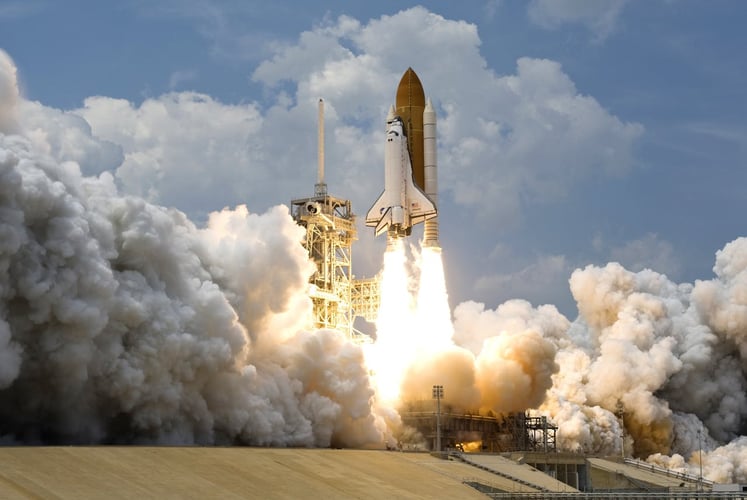Advancements in Rocket Technology: The Future of Space Travel
Discovering the latest breakthroughs in rocket technology is not just about advancements in propulsion systems or spacecraft design; it's about unlocking the endless possibilities that lie ahead in the realm of space travel. These breakthroughs are reshaping the future of exploration, enabling us to reach further into the cosmos than ever before. From revolutionary propulsion systems to innovative spacecraft designs, the future of space travel is brighter and more exciting than we could have ever imagined. Let's delve into the wonders of rocket technology and envision the incredible journeys that await us in the vast expanse of space.
Revolutionizing Rocket Propulsion Systems
Rocket propulsion systems are undergoing a revolution, with advancements that promise to reshape the future of space travel. One of the key areas of focus is improving the efficiency and power of rocket engines. Scientists and engineers are exploring new propulsion technologies such as electric propulsion, ion propulsion, and nuclear propulsion.
These new propulsion systems have the potential to significantly reduce travel time and enable us to reach distant planets and even other star systems. Electric propulsion, for example, uses electric power to accelerate propellant, resulting in higher exhaust velocities and greater fuel efficiency. Ion propulsion, on the other hand, uses ionized particles to generate thrust, offering even higher exhaust velocities and longer mission durations. Nuclear propulsion, although still in the experimental stage, holds the promise of achieving even greater speeds.
In addition to improving propulsion systems, researchers are also working on innovative concepts such as air-breathing rocket engines. These engines would be capable of drawing in oxygen from the atmosphere instead of carrying it onboard, making them more efficient and reducing the amount of propellant needed for a mission. Such advancements in rocket propulsion systems open up exciting possibilities for future space exploration and colonization.
Innovations in Reusable Rocket Technology
Reusable rocket technology has been a game-changer in the space industry. Traditionally, rockets were discarded after a single use, leading to exorbitant costs and wastage of resources. However, with the development of reusable rocket technology, rockets can be recovered and reused multiple times, significantly reducing the cost of space missions.
In recent years, companies like SpaceX have made significant strides in the field of reusable rockets. SpaceX's Falcon 9 rocket, for example, is designed to be partially reusable, with the first stage capable of landing back on Earth after delivering its payload to orbit. This breakthrough has not only revolutionized the economics of space travel but has also paved the way for ambitious projects like the colonization of Mars.
The advancements in reusable rocket technology have also led to increased interest in space tourism. With reusable rockets, it becomes economically feasible to offer commercial space travel experiences to the general public. This opens up a whole new industry and brings us closer to a future where space travel is not limited to astronauts but is accessible to anyone with the means and desire to explore the cosmos.
Advancements in Spacecraft Design
Spacecraft design has come a long way since the early days of space exploration. Today, spacecraft are being designed to be more efficient, durable, and capable of long-duration missions. One of the key advancements in spacecraft design is the use of lightweight materials that can withstand the harsh conditions of space while minimizing the overall weight of the spacecraft.
Another important aspect of spacecraft design is the integration of advanced sensors and instruments. These enable spacecraft to gather more accurate and detailed data about celestial bodies, helping us better understand the universe and search for signs of extraterrestrial life. In addition, advancements in communication systems and navigation technology have made it possible to control and monitor spacecraft remotely, reducing the risks and costs associated with manned missions.
Furthermore, spacecraft are being designed with sustainability in mind. For example, solar panels are commonly used to generate power for onboard systems, reducing the reliance on limited resources like fuel. In the future, we can expect to see even more innovative spacecraft designs that prioritize efficiency, sustainability, and the ability to support long-duration missions.
Exploring Sustainable Rocket Fuel Options
As we look towards the future of space travel, finding sustainable rocket fuel options is crucial. Traditional rocket fuels, such as liquid hydrogen and liquid oxygen, are highly effective but require extensive resources and can have negative impacts on the environment. That's why researchers are actively exploring alternative fuel options that are more sustainable and environmentally friendly.
One promising area of research is the development of biofuels for rockets. Biofuels, derived from renewable sources such as algae or plant matter, offer the potential to significantly reduce carbon emissions and reliance on nonrenewable resources. These fuels can be produced using sustainable farming practices and have the added benefit of being biodegradable.
Another avenue being explored is the use of methane as a rocket fuel. Methane is abundant in our solar system, particularly on other planets like Mars. Utilizing methane as a propellant would not only reduce the need for Earth-based resources but also enable in-situ resource utilization during long-duration missions. This approach would greatly enhance the sustainability and self-sufficiency of space travel.
Overall, the exploration of sustainable rocket fuel options is an important step towards ensuring the long-term viability and environmental responsibility of space travel. By embracing cleaner and more efficient fuels, we can minimize our impact on the Earth and pave the way for a sustainable future in space.
The Role of Artificial Intelligence in Space Exploration
Artificial intelligence (AI) is playing an increasingly important role in space exploration. From mission planning to data analysis, AI systems are helping scientists and engineers make sense of the vast amounts of information collected during space missions.
One of the key applications of AI in space exploration is autonomous spacecraft navigation. AI algorithms can analyze sensor data in real-time and make decisions on the optimal trajectory and course corrections. This enables spacecraft to navigate through space more efficiently and avoid potential hazards.
AI is also being used to analyze images and other data collected by space telescopes and rovers. Machine learning algorithms can identify patterns, detect anomalies, and classify objects, helping scientists gain a deeper understanding of the universe. AI systems can also assist in the search for extraterrestrial life by analyzing data for signs of biological activity or habitable conditions on other planets.
Furthermore, AI has the potential to revolutionize the way we conduct space research. By leveraging AI-powered simulations and models, scientists can simulate complex phenomena, explore different scenarios, and optimize mission parameters. This can greatly accelerate the pace of scientific discovery and enable us to explore new frontiers in space.
In conclusion, the integration of artificial intelligence into space exploration holds immense potential. By harnessing the power of AI, we can enhance the efficiency, safety, and scientific output of space missions, opening up new opportunities for discovery and innovation.
.png?width=600&height=280&name=Navdurga%20Tourism%20Logo%20(1).png)



